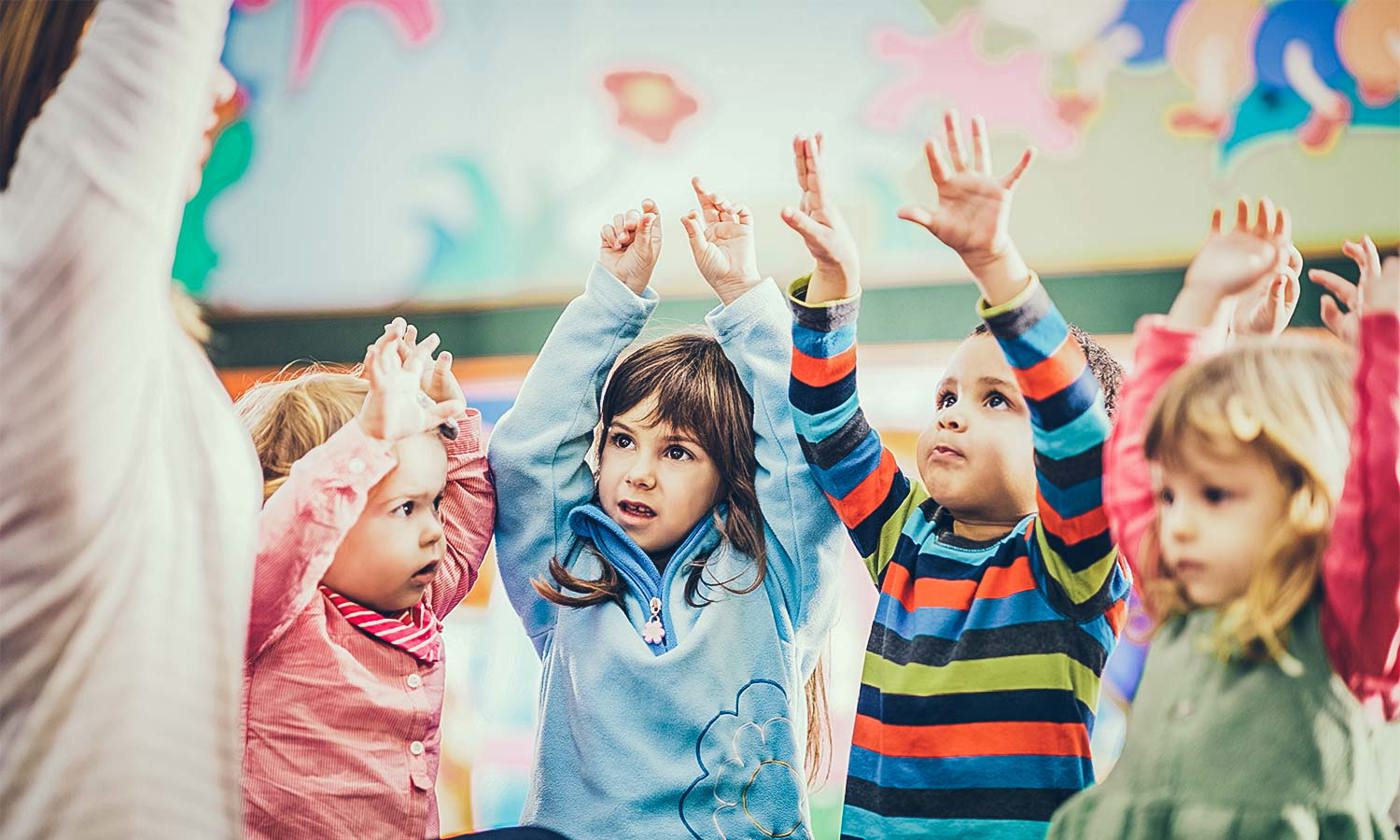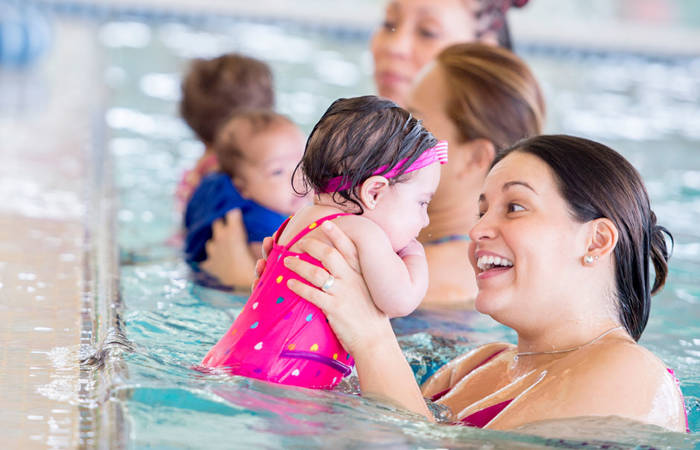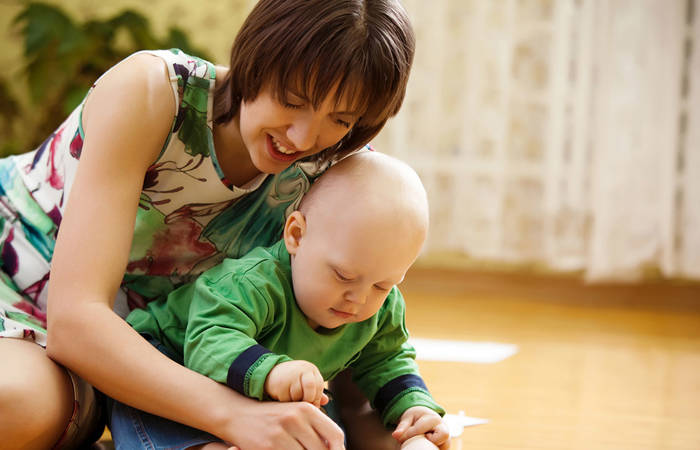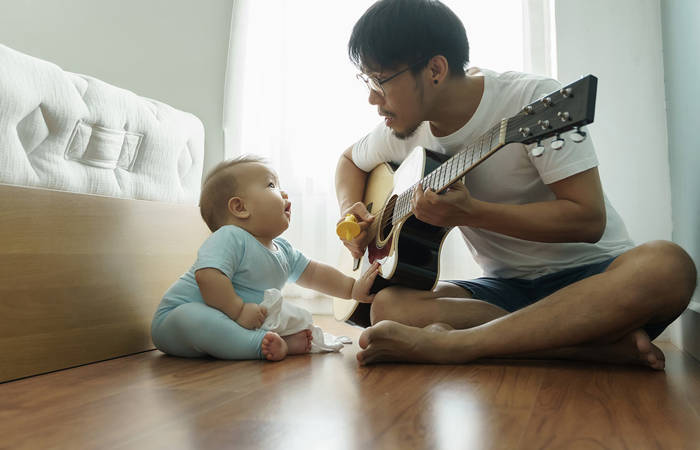Like what you see?
Sign up to receive more free parenting advice.
Thank you for subscribing to our newsletter!
Early Learning

Credit: iStock.com/skynesher
It's as polarising as it is political; as ideology-laden as it is debate-inducing.
Child care. Early learning.
Like most things associated with bringing up children, a parent's early learning decision is a magnet for unsolicited advice, counsel and critique.
There are pros. There are cons. There are opinions.
So. Many. Opinions.
But take the politics and the personal sanctimony out of it and what is left?
The answer to that question is a gaping educational hole – at least that's what some of the country's leading educational authorities believe.
"It is bemusing and frustrating that we are still having this debate and early learning is still a political issue," Melbourne University Murdoch
Children's Research Institute Community and Child Health director Professor Frank Oberklaid OAM says.
"We are at a point in time where we have now known for years of the need for early education.
"The cost of school is not open to debate, so why are we having these debates about children from birth to five years?"
Moreover, he says, Australia is well behind world-best standards.
"If we look at countries known for their high standards of education – take Finland, for example – the commitment to education begins with early learning.
"In Finland, child care and early learning has bi-partisan support. It is not a political football. It is not an ideological weapon.
Professor Oberklaid says the affordability of child care shouldn't be an issue.
"All sides of politics know the impact of a high standard of early learning and the funding of it is taken out of the political arena."
The Professor says there are volumes of research which show the direct link between strong early learning outcomes and an overall increased standard of education.
"If we followed the research in Australia then we wouldn't even be having this argument."
Susan Edwards, Professor of Education in the Learning Sciences Institute of Australia, Australian Catholic University, says European early learning models have a lot to offer in the Australian context.
She says education and child care for children aged birth to five or six years could be as flexible as it is fluid.
"Research points to play-based learning being foundational for children," Professor Edwards says.
"Engaged play between a child and an educator, with an outcome focus, was shown to facilitate the development of concepts around exploration – and that was where learning happens."
Professor Edwards says, certainly, there has been some steps forward, but much of the decision making and politics in Australia are still driven by personal perspectives.
"2009 was a watershed moment, when we saw the first Early Learning Framework developed."
A great step forward, she says, but still some ground to be made up.
It is bemusing and frustrating that we are still having this debate and early learning is still a political issue. The cost of school is not open to debate, so why are we having these debates about children from birth to five years?Professor Frank Oberklaid OAM
Associate Professor Susan Krieg, Early Childhood Program Coordinator at Flinders University, cited the most recent OECD Starting Strong research, in asserting Australia's early learning shortcomings.
"Australia is not looking good," she says.
"Continuity of care and relationships is one of the most critical elements in a child's development; and in the early learning context relationships formed on a day-to-day basis are vital."
Associate Professor Krieg said where, in some Australian states, child care and early learning funding is determined year to year (and budget to budget) centres were unable to guarantee long-term, ongoing employment for staff.
"If a centre cannot make those guarantees, then there is a risk of change and then that continuity is lost," she says.
"This lack of commitment to early education – and funding – is not helpful and it inhibits the development of programs.
"The political agenda is all about innovation … we need to foster that, and building knowledge as well as dispositions to creativity, resilience and curiosity."
All three early learning sector leaders maintain that while education for the birth to five-year-old age group is considered as "optional" or not seen as critical to the national education standard as primary, secondary or higher/vocational education, then Australia will not offer the same educational standards as countries such as The Netherlands, Finland or Sweden.
Professor Oberklaid says, "The science is clear. Creating learning opportunities and socialising opportunities early in life is important for a person's lifelong learning and education.”
"And where there are children who are at risk, or vulnerable, then child care provides a very important opportunity for intervention."
"The question of can we afford child care should not even be part of the conversation."
So, what do we need?
- Bi-partisan support of early learning and its importance in the overall standard of education in Australia
- A commitment to enabling access to early learning and child care without making it a political football
- A commitment to long-term funding, in line with the commitment to primary and secondary education
- Strong adherence to proven, evidence-based research
Get Advice
Real parents. Real problems. We’re here with a group of leading early learning and parenting professionals to answer your questions.
Quality Early Learning
Quality early learning gives children the skills to set them up for the best start to their school education. A Melbourne Institute study found that children who attended preschool led by a Diploma or Degree qualified teacher scored how many points higher on their Year 3 NAPLAN Tests?



